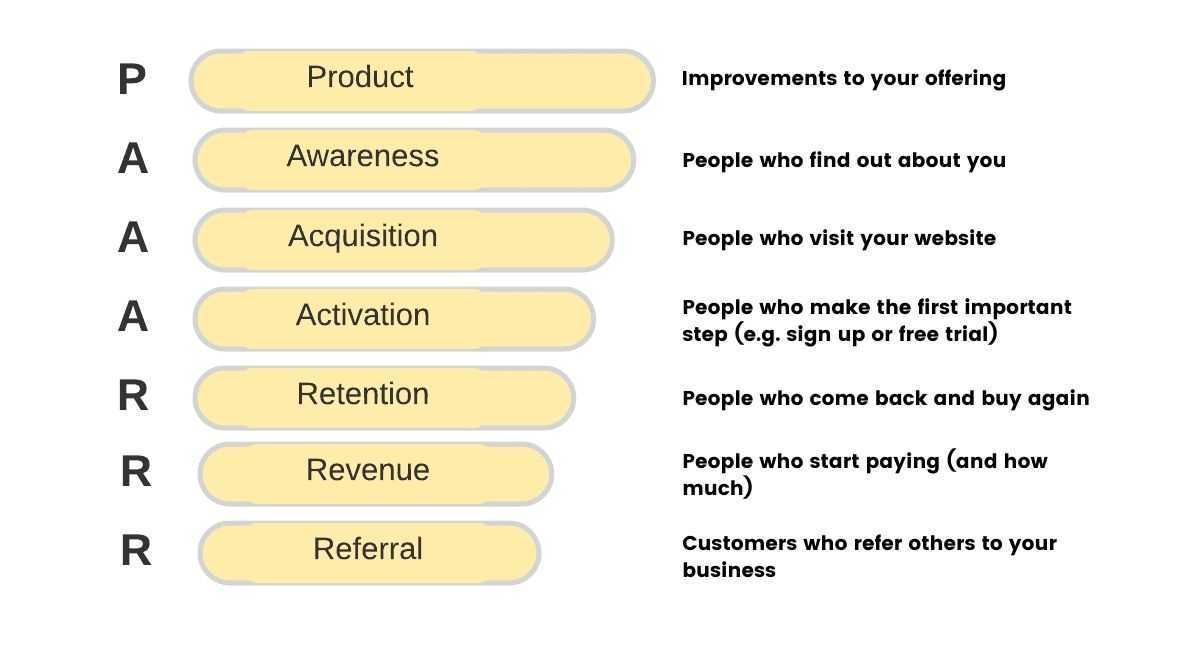What are the strategic partnership benefits?
- Publication date
- Author
- Imogen Beech
- Reading time
- 11 minute read
There are so many benefits to strategic partnerships. And we mean it!
Why else would more than 2,000 strategic alliances be formed each year (according to Steve Steinhilber in Strategic Alliances)? Any why else would 82% of B2B leaders plan to add to their roster of partners in 2022 (according to the Demand Gen 2022 Partner Marketing Benchmark Survey)?
Here, we’ll look at why exactly so many brands are making partnerships integral to their business strategies. But first…
At its most basic level, the role of a strategic partner is to add value your business. Meanwhile, you’ll need to focus on helping to add value to your partner’s business in return.
Broadly speaking, this value is largely centred around growth. After all, the Hinge High Growth Study for 2020 has shown that high-growth brands are a massive three times more likely to use marketing partnerships as part of their overall strategy than no-growth firms!
That said, it’s important to remember that there isn’t just one kind of strategic partnership. Rather, there are more than 15 types of strategic partnerships that we’ve counted. And while they can all help with business growth, they each do so in different ways.
Let’s go right back to marketing basics and take a look at the pirate funnel.

Depending on the type of partnership you choose, a strategic partnership could help you to optimise any one of the steps in this funnel – whether that be awareness, acquisition, activation, retention, revenue or referral – and that in turn should ultimately help you to grow your business.
If you’re eagle-eyed, you may have noticed that a rogue ‘P’ has made it into our version of the pirate funnel, which we refer to as the PAAARRRtnership funnel. It stands for ‘product’ as, let’s be honest, everything starts with product. Partners that can help you to improve your offering at product level will help you to unlock all sorts of other benefits, from revenue to referral, retention to activation and more, all ultimately leading to growth.
Ultimately, the key is considering which business metrics are holding your business back, and forming a partnership that can help you to improve them. This way, you can be sure that your partnership is centred around helping you to meet your business goals.
As you’ve probably already gathered, there are more possible strategic partnership benefits than we can count. After all, every brand, partner and partnership agreement is different, so the sky’s the limit!
Having said that, here are some of the main strategic partnership benefits – and some ideas for partnership types that can help you to unlock each one.
Firstly, strategic partnerships can be a great way to boost brand awareness – which is the first step towards gaining new customers! After all, how is anyone going to buy your product if they’ve never even heard of you before?
Brand awareness is notoriously difficult to measure, so partnerships that are aimed at boosting it can be difficult to quantify too. That said, there are a number of partnership types that are perfectly suited to it, for instance sponsorship marketing and product placement.
These kinds of partnerships are all about putting your brand or product in front of as many people as possible and they can be very subtle. In this way, they’re about helping you to become a household name so that later down the road, when consumers are looking for a product like yours, your brand is the one that springs to mind!
Useful partnership types: Sponsorship marketing, product placement, influencer marketing, content marketing partnerships.
In a similar vein, partnerships can be a really useful tool to help you improve your brand reputation. This can be especially beneficial if your reputation has recently suffered a knock – for example, maybe you’ve been in the press for… well… not the best reasons! That said, making the effort to shape your reputation can be a good move for any business, as it allows you to present your brand exactly how you want it to be perceived.
Charity partnerships, which involve a brand partnering with a charity, tend to be the primary route for those looking to hone their brand reputation. These allow brands to demonstrate their sense of corporate social responsibility, and to encourage consumers to see them in a positive light. This is particularly important given Accenture’s findings that six in ten consumers under the age of 30 consider a brand’s ethical values carefully before buying their products.
That said, other kinds of partnerships that are centred around standing behind a good cause can also help. For instance, Wattpad and Ben + Jerry’s Canada teamed up on a co-branded write-a-thon that encouraged writers to share stories on the Wattpad platform about moments where they felt proud to be a member of the LGBTQ+ community (you can read more about it in our selection of fantastic co-branding examples). The partnership actually boosted the perception of Ben + Jerry’s and their involvement with the LGBTQ+ community by 142.8%!
Useful partnership types: Charity partnerships, sponsorship, content marketing partnerships, co-branding.
If you’re looking to increase traffic to your website, a strategic partnership (or several!) could help. There are a few different ways of doing this depending on what you hope to achieve in the short and long term.
To get an immediate boost of traffic, you could team up with an affiliate who can promote your products or services to their audience. Usually, affiliates receive a performance-based financial reward for each sale they help you to achieve, but if traffic is your primary goal, you can reward them per click instead. In this case, each time someone clicks through to your website using a link that the affiliate has shared, you’ll pay your partner (thanks to the power of affiliate link tracking software!).
Alternatively, a long-term strategy could be a content marketing partnership. While content marketing partnerships are great for raising awareness of your brand amongst new audiences, they can also help with SEO. Essentially, the more that other high-quality websites link to yours, the more Google will see you as a trustworthy source of information and over time, your positions in the SERPs (search engine results pages) will usually improve accordingly – helping to drive more traffic to your site.
Useful partnership types: Affiliate marketing, content marketing partnerships.

Want to reach new markets? Then, you guessed it, a strategic partnership will be right up your street. There are lots of different partnership types that can help with this one, as when you partner with another brand, you’ll almost always gain access to their audience, which could be a whole new market for you to tap into!
That said, distribution marketing partnerships are particularly helpful when it comes to unlocking this strategic partnership benefit. They’re all about using a partner brand’s distribution channels, whether that’s to sell your product to their audience or to promote your products and services.
Another useful kind of partnership to bookmark is a supply chain partnership. These collaborations involve partners working together from different levels of the supply chain. If you manufacture a product, or a part of a product that can be used to make a larger whole, partnering with brands that are higher up the supply chain and that sell directly to consumers can help you to make your product available to those you wouldn’t otherwise be able to reach.
Useful partnership types: Distribution marketing partnerships, supply chain partnerships, joint ventures.
Strategic partnerships are a must for any brand that wants to expand its mailing list. By working with a partner, you can incentivise consumers to join your mailing list in much more powerful ways than you might be able to alone.
Incentive marketing partnerships are all about incentivising your customers to carry out specific actions, so they’re perfect in this scenario. You just need to team up with a partner that can provide an incentive for your customers to join your mailing list – whether that’s entry into a competition to win a holiday, a discount code or even a free item like a tote bag. It’s good marketing for them and more email sign-ups for you!
Alternatively, we love comarketing partnerships when it comes to boosting email signups. Comarketing is when two brands team up to jointly promote something – often a valuable piece of content (perhaps an ebook, webinar or template) they’ve co-created, that sits behind an email capture wall. In order to access the content, consumers have to enter their email address. This has the added benefit of helping you to capture the email addresses of your partner’s audience, who you might otherwise struggle to reach.
Useful partnership types: Incentive marketing partnerships, comarketing, content marketing partnerships.
Pretty much every business wants to boost sales – after all, it’s this that directly causes your revenue to grow! Well, guess what? There are many different kinds of partnerships that can help you if this is your goal.
Before you decide on a partnership type, however, check where you currently have room for improvement on the sales front. Are you struggling to get customers onto your product pages in the first place? Or is it your conversion rate that’s the issue?
If it’s conversion rate, incentive marketing can encourage consumers to make the leap by offering them an incentive from a partner brand. Or, it might be that you need to make some tweaks to your product offering to make it more appealing, in which case a product partnership or a bundling partnership (where your offering is combined with that of a partner brand’s) could be the way forward.
If, on the other hand, your conversion rate is decent, you’ll probably love affiliate marketing. Affiliates can boost your marketing impact by promoting your products to their own loyal audiences, which can be particularly effective if they share your niche. Plus, you only have to pay them based on performance so it’s a really cost-effective method!
Useful partnership types: Bundling, product partnerships, incentive marketing partnerships, affliliate marketing.
Of course, boosting your ROI isn’t all about sales. It can also be about improving your margins, which is where cutting costs can be hugely beneficial.
There are a few different partnership types that can help you to keep your costs down, but outsourcing is a major one. Sometimes, outsourcing certain administrative tasks, such as accounting, tech support or customer service, can be cheaper than hiring a full-time employee or team to carry out the task in-house. Supply chain partnerships work similarly, allowing brands to delegate the manufacturing of certain parts or products to a partner.
Alternatively, brands often work together on product partnerships so that one brand isn’t left putting forward all the money and resources required to develop a new technology by itself. This is especially the case with futuristic inventions like driverless cars, which are often so technologically complex that a company would find them very hard to master alone.
Useful partnership types: Product partnerships, outsourcing, joint ventures.

Another strategic partnership benefit is the ability to gain a partner’s expertise. Let’s face it, nobody can be an expert at everything. And working together is a great way to fill the gaps in your skillset (we’re sure you’ve heard the phrase ‘two heads are better than one’).
Outsourcing can be an effective way to gain a partner’s expertise. For example, you might outsource your marketing or customer service because another company can do a better job than you can in those areas. Similarly, you might outsource the manufacturing of parts of your product in a supply chain partnership, as it might be that a partner has skills and experience where you don’t.
At the end of the day though, it’s all about working out where the gaps are in your skillset, and how a partner can complement you. For instance, a product partnership could enable you to leverage both your own and a partner’s technologies, while a distribution marketing partnership or joint venture partnership could enable you to use a partner’s experience and foothold in a particular geographical area to aide your expansion. There are no limits!
Useful partnership types: Outsourcing, product partnerships, distribution marketing partnerships, licensing arrangements, joint ventures.
Frustrated with your retention rates? Whether you’re a subscription brand that can’t keep your customers longer than a few months or a retailer that’s struggling to get repeat business, partnerships can help.
The most obvious partnership type for boosting retention has to be incentive marketing partnerships. After all, these are designed especially to encourage a sought-after customer behaviour. So, it’s natural that teaming up with a partner to provide a valuable incentive could be a fantastic way to increase loyalty. In fact, there’s a whole strand of incentive marketing designed especially for this – according to HighNote, 72% of consumers in the US take part in a loyalty marketing program!
That said, no matter how much you incentivise your customers, they’re not going to keep returning if your product isn’t delivering enough value. That’s why product partnerships can be another effective way to boost retention. By collaborating with a partner brand to improve your product offering, you’ll be able to provide more value to consumers and they’re more likely to stick around.
Useful partnership types: Incentive marketing partnerships (especially loyalty programmes), product partnerships.
Building trust between your brand and consumers is essential to building a successful business. And luckily, this is an area where strategic partnerships can help yet again.
Word of mouth is a key way to enhance trust within a community, yet one that’s very difficult to control. However, an incentive marketing partnership can be a great way to encourage consumers to recommend you to their friends and family. Likewise, referral agreements can help you to build credibility. Usually, this would involve a partner brand recommending your business to their customers – for example, an estate agent might recommend a mortgage broker to their clients, knowing their customers will need one.
At the other end of the scale, you’ll find product partnerships and supply chain partnerships – forming a partnership of this kind with a reputable brand that has a proven track record for delivering quality can act as a mark of trust. Just think of all the laptops that contain Intel microprocessors (including laptops by Dell, Lenovo and HP). It’s no surprise that most have an ‘Intel inside’ sticker on them, so that they can boast about the fact their microprocessors are made by a trusted brand!
Useful partnership types: Incentive marketing partnerships, referral agreements, influencer marketing, product partnerships, supply chain partnerships, co-branding.
Stagnancy is the enemy of any successful business, especially when it comes to technology companies. After all, if you’re not constantly evolving and improving to keep up with a fast-changing market, your competitors will be – so, you risk getting left behind!
One of the major strategic partnership benefits is being able to leverage a partner’s skills to stay ahead of your competition. And although we’ve already mentioned product partnerships many times in this article, they’re one of the best ways you can do that.
For big brands (think your Googles, Microsofts and Apples), moving rapidly can be challenging – they’re often weighed down by processes and protocols. On the other hand, startups are usually more agile. By teaming up on a partnership with a startup, larger technology companies can add new products and features to their offering much faster, enabling them to stay at the forefront of a fast-moving market.
Useful partnership types: Product partnerships, licensing arrangements.

Finally, strategic partnerships can allow you to split the risk of a new project with a partner. Let’s face it, you might think you have the best idea in the world, but nothing is ever guaranteed to go exactly as planned. By teaming up with another brand, you can split the cost or pool your resources so that you can pursue a new project while minimising your level of risk.
You’ll often see this strategic partnership benefit when it comes to product partnerships in which partners agree to jointly create a new product. Brands might both contribute equally financially, or they might agree that one brand will foot more of the budget while the other will provide the sweat equity. Either way, by working together, partners can minimise the damage their companies will each take on if the product doesn’t recuperate.
Joint ventures are another form of partnership that allow brands to reach a common goal while each taking on a share of the risk. This more legally entangling form of partnership allows brands to go into business together while remaining as separate entities. For example, two oil companies who both want to start drilling in the same area might agree to pool their financial resources, sharing the financial burdens and the profit that comes with it.
Useful partnership types: Product partnerships, joint ventures.
--
You might think that’s a lot of strategic partnership benefits, but we promise, it’s just the tip of the iceberg! Other potential benefits of successful strategic partnerships include boosting conversion, saving time and resources, increasing capacity… the list goes on.
If you’re ready and raring to start claiming some strategic partnership benefits of your own, remember to consider where exactly your brand has room for improvement. Then, choose a partnership type and partner brand that can help you to fill in those gaps – it’s all about finding the right fit!
Oh, and don’t forget that Breezy can help you find hyper-relevant partner prospects that could be just what you’re looking for. Simply book a demo to see exactly what we can do for you.
Imogen is a copywriter and content writer with over two years’ experience writing about the exciting world of strategic partnerships, as well as running her own business. She loves learning about new topics as she writes, and has enjoyed penning articles on industries ranging from mortgages to events, theatre to home improvements and everything in between.
View more by Imogen Beech